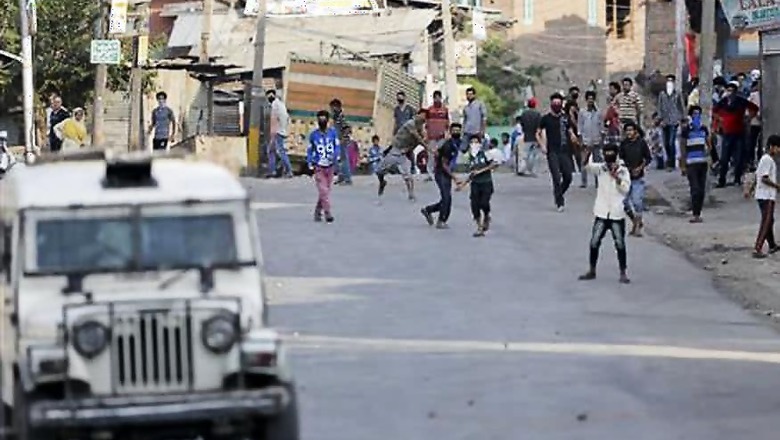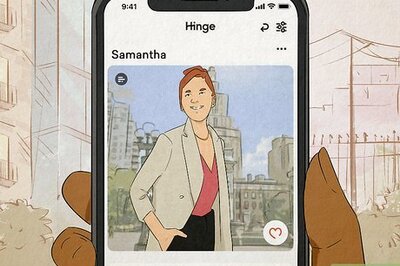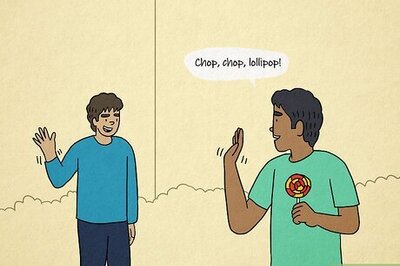
views
New Delhi: In his speech before the Constituent Assembly in January 1947, GB Pant, who was then the Chief Minister of United Provinces (later Uttar Pradesh) said to the cheers of the members: "We have forgotten that a citizen exists as such. There is the wholesome, and to some extent a degrading habit of thinking always in terms of communities and never in terms of citizens.’
So, when Ruwa Shah, a Kashmiri, spoke to me recently in Delhi, somewhere very close to where GB Pant had spoken of citizen’s happiness as the cardinal centre of all social activity, I wondered how I should introduce her in my show - Kashmir’s cold summer. Will her thoughts reflect the sentiments of Kashmiris? Of Kashmiri Muslims? 23-year-old Ruwa had moved to Delhi a year and a half ago for better opportunities, and for "acquiring a stature that will make her a formidable voice on issues of her home, Kashmir.’
The protests that followed the death of Hizbul Mujahideen Commander Burhan Wani reflected the sentiments of Kashmiris like her, she said, while recounting how she was trolled for her tweets on being under curfew at home in Srinagar for 10 days. "The moment I landed in Delhi I realised I was so violent in my thoughts in Kashmir.
Ruwa may not have joined the protests but she refuses to integrate her identity of a Kashmiri Muslim with that of Kashmiris at large or with that of Indian Muslims. The Kashmiriyat, seen as a definition promoted by the state aimed at an utopian principle of co-existence, is no longer acceptable to many like her. Nationalism is being redefined by the Kashmiris.
Ruwa further said that Delhi is hostile towards Kashmiris. "If the Indian state calls Kashmir an integral part of it then shouldn't the pellet guns that are blinding a generation be stopped? Will you do this to your own people?" she asked. I am left wondering what’s nationalism for Indian Muslims, at a time when the entire discourse is hyper-nationalist.
"It’s this narrative that’s pushing the Kashmiris away," said Shehla Rashid. JNU Student Union vice president Shehla Rashid talked on how her identity as a Kashmiri Muslim was questioned by some during the protests in February this year. "Post the February 9 incident, cops have been landing at the dean office, and are singling out Kashmiri students and collecting details of them, branding them as terrorists. A number of Kashmiri students studying in various campuses across Delhi I tried to speak to refused to come on camera, because of the fear of being targeted.
Having lived under curfew when there was a clampdown in the valley in 2008, Shehla said, "India is creating Kashmirs everywhere, the curfew is not just on the streets, but it is on minds. It's happening in the rest of India as well, civil liberties are getting crushed.
It's not just the Muslims in the Valley that are facing an identity crisis. Sidharth Gigoo, an author and a filmmaker, says Kashmiri Pandits have been reduced to "mere hashtags."
Gigoo was 15 when the valley erupted in 1989. ‘Kashmir belongs to Kashmiri Pandits as much as it belongs to Kashmiri Muslims. There is a deliberate obliteration that’s happening." he said.
Many like him may have rented apartments and jobs outside the state, but the "exile consciousness" remains. The problem is that there is a generation of Kashmiri Pandits who were born during exile, outside the state. They have borrowed memories. His 70-year-old father, a retired professor of Anantnag University, reminds us that Kashmir, "doesn’t have cinema halls or bars, it’s a living hell".
He told us how he once wrote an open letter to Kashmiri Muslims urging them to understand who they were. In the letter Gigoo had said that Kashmir is an issue of great betrayal by the political class and that gullible Muslims were victims of politicking. His take - the paradise got lost in 1947 itself and the idea of Kashmir can no longer be pursued. Recounting old stories of cultural integration between the two communities, he concluded : "Today Kashmiri Muslims hate us, we hate them. They distrust us."
I am reminded of what Mahatma Gandhi said about the Indian flag in 1924, "Any nation needs a flag- the white strip would represent the other religions. It would come first since they are smaller in numbers. The colour of Islam (green) would follow and the Hindu red (saffron) would come last to show that the strongest must protect the weak....and to show that the weak is equal to the strong, the three strips would have the same size."
Many disagree with this concept of nationalism. Ruwa, Shehla and Sidharth negotiate multiple identities and ponder over which one to unravel, depending on the time and space. They may not be at home in Kashmir but their identity as Kashmir's children of conflict makes them a community - that's the new normal for these young women and men.

















Comments
0 comment